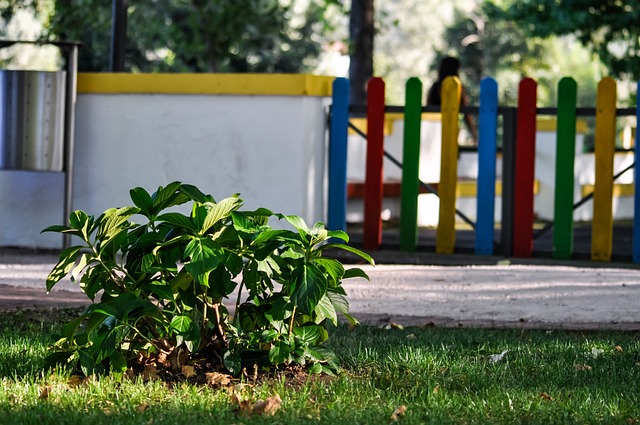Composting and recycling yard waste, such as leaves, grass clippings, and food scraps, is an effective way to reduce landfill contributions, enrich garden soil, and promote a circular economy. Education on yard waste removal and recycling in schools and communities is crucial for instilling environmental protection habits in future generations. By empowering students and communities with knowledge and responsible practices, we can foster a sustainable future while minimizing our impact on the environment.
“Unleash the power of sustainable practices with an in-depth look at Yard Waste Removal and Recycling. In today’s eco-conscious world, understanding composting and its role in reducing waste is essential. This article explores the basics of yard waste removal, transforming it into a valuable resource through composting techniques. Furthermore, we delve into the recycling revolution, showcasing how trash can become treasure. Additionally, discover effective strategies to educate both schools and communities about sustainable futures, fostering environmental stewardship from an early age.”
- Understanding Yard Waste Removal: The Basics of Composting
- Recycling Revolution: Transforming Trash into Treasure
- Educating for a Sustainable Future: Strategies to Implement in Schools and Communities
Understanding Yard Waste Removal: The Basics of Composting

Understanding Yard Waste Removal through composting is a fundamental step in promoting sustainable practices. Composting involves transforming organic waste, such as leaves, grass clippings, and food scraps, into nutrient-rich soil amendment known as compost. This process not only reduces the amount of yard waste sent to landfills but also offers a natural way to enrich garden soil, fostering healthier plants and reducing the need for synthetic fertilizers.
By adopting composting methods, individuals can actively participate in recycling their organic materials, ensuring they break down naturally rather than contributing to the environmental impact of landfill waste. This simple yet effective practice forms a crucial component of responsible yard waste removal, allowing for a more circular approach to household and garden waste management.
Recycling Revolution: Transforming Trash into Treasure

In today’s world, where environmental consciousness is rising, a recycling revolution is underway—one that transforms mundane trash into valuable resources. This shift starts with education and understanding the potential of yard waste removal and recycling. By embracing this concept, communities can significantly reduce their carbon footprint and contribute to a more sustainable future.
Composting, a key aspect of this process, turns organic yard waste into nutrient-rich compost, which can then be used to enhance soil health and support local gardening efforts. This simple yet powerful practice not only diminishes the amount of waste sent to landfills but also encourages folks to rethink their relationship with trash, viewing it as a potential treasure waiting to be unearthed through proper recycling techniques.
Educating for a Sustainable Future: Strategies to Implement in Schools and Communities

In an era where sustainability is paramount, educating future generations about responsible waste management practices is essential. Schools and communities play a crucial role in instilling habits that promote a greener planet. By integrating composting and recycling initiatives into academic curriculums, we empower students to become environmentally conscious citizens. Teachers can facilitate engaging activities, such as setting up classroom compost bins or organizing field trips to local recycling centers, making learning interactive and memorable.
Beyond the classroom, community involvement is vital for successful long-term change. Encouraging neighbors, local businesses, and government bodies to adopt and promote practices like Yard Waste Removal and Recycling creates a collective impact. This can be achieved through workshops, informational campaigns, or even simple reminders on utility bills. By fostering a culture of sustainability, we ensure that today’s children grow up with the knowledge and responsibility to protect our environment for generations to come.
Composting and recycling education are powerful tools for promoting sustainable practices. By understanding the basics of yard waste removal through composting and embracing the recycling revolution, individuals can significantly contribute to a greener future. Implementing these strategies in schools and communities not only fosters environmental awareness but also empowers folks to make responsible choices. Together, we can transform trash into treasure and create a more sustainable world for generations to come.
